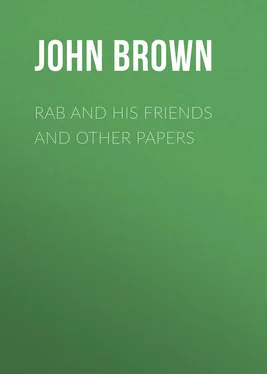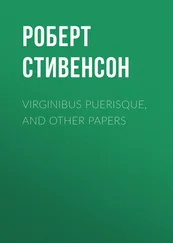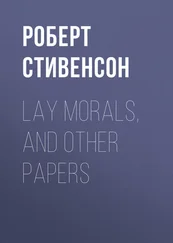John Brown - Rab and His Friends and Other Papers
Здесь есть возможность читать онлайн «John Brown - Rab and His Friends and Other Papers» — ознакомительный отрывок электронной книги совершенно бесплатно, а после прочтения отрывка купить полную версию. В некоторых случаях можно слушать аудио, скачать через торрент в формате fb2 и присутствует краткое содержание. Жанр: foreign_antique, foreign_prose, на английском языке. Описание произведения, (предисловие) а так же отзывы посетителей доступны на портале библиотеки ЛибКат.
- Название:Rab and His Friends and Other Papers
- Автор:
- Жанр:
- Год:неизвестен
- ISBN:нет данных
- Рейтинг книги:5 / 5. Голосов: 1
-
Избранное:Добавить в избранное
- Отзывы:
-
Ваша оценка:
- 100
- 1
- 2
- 3
- 4
- 5
Rab and His Friends and Other Papers: краткое содержание, описание и аннотация
Предлагаем к чтению аннотацию, описание, краткое содержание или предисловие (зависит от того, что написал сам автор книги «Rab and His Friends and Other Papers»). Если вы не нашли необходимую информацию о книге — напишите в комментариях, мы постараемся отыскать её.
Rab and His Friends and Other Papers — читать онлайн ознакомительный отрывок
Ниже представлен текст книги, разбитый по страницам. Система сохранения места последней прочитанной страницы, позволяет с удобством читать онлайн бесплатно книгу «Rab and His Friends and Other Papers», без необходимости каждый раз заново искать на чём Вы остановились. Поставьте закладку, и сможете в любой момент перейти на страницу, на которой закончили чтение.
Интервал:
Закладка:
I have over and over again sat down to try and do what I promised and wished – to give some faint expression of my father's life; not of what he did or said or wrote – not even of what he was as a man of God and a public teacher; but what he was in his essential nature – what he would have been had he been anything else than what he was, or had lived a thousand years ago.
Sometimes I have this so vividly in my mind that I think I have only to sit down and write it off, and do it to the quick. "The idea of his life," what he was as a whole, what was his self, all his days, would, – to go on with words which not time or custom can ever wither or make stale, —
"Sweetly creep
Into my study of imagination;
And every lovely organ of his life
Would come apparelled in more precious habit —
More moving delicate, and full of life,
Into the eye and prospect of my soul,
Than when he lived indeed;"
as if the sacredness of death and the bloom of eternity were on it; or as you may have seen in an untroubled lake, the heaven reflected with its clouds, brighter, purer, more exquisite than itself; but when you try to put this into words, to detain yourself over it, it is by this very act disturbed, broken and bedimmed, and soon vanishes away, as would the imaged heavens in the lake, if a pebble were cast into it, or a breath of wind stirred its face. The very anxiety to transfer it, as it looked out of the clear darkness of the past, makes the image grow dim and disappear.
Every one whose thoughts are not seldom with the dead, must have felt both these conditions; how, in certain passive, tranquil states, there comes up into the darkened chamber of the mind, its "chamber of imagery" – uncalled, as if it blossomed out of space, exact, absolute, consummate, vivid, speaking, not darkly as in a glass, but face to face, and "moving delicate" – this idea of his life and then how an effort to prolong and perpetuate and record all this, troubles the vision and kills it! It is as if one should try to paint in a mirror the reflection of a dear and unseen face; the coarse, uncertain passionate handling and colour, ineffectual and hopeless, shut out the very thing itself.
I will therefore give this up as in vain, and try by some fragmentary sketches, scenes, and anecdotes, to let you know in some measure what manner of man my father was. Anecdotes, if true and alive, are always valuable; the man in the concrete, the totus quis comes out in them; and I know you too well to think that you will consider as trivial or out of place anything in which his real nature displayed itself, and your own sense of humour as a master and central power of the human soul, playing about the very essence of the man, will do more than forgive anything of this kind which may crop out here and there, like the smile of wild-flowers in grass, or by the wayside.
My first recollection of my father, my first impression, not only of his character, but of his eyes and face and presence, strange as it may seem, dates from my fifth year. Doubtless I had looked at him often enough before that, and had my own childish thoughts about him; but this was the time when I got my fixed, compact idea of him, and the first look of him which I felt could never be forgotten. I saw him, as it were, by a flash of lightning, sudden and complete. A child begins by seeing bits of everything; it knows in part – here a little, there a little; it makes up its wholes out of its own littles, and is long of reaching the fulness of a whole; and in this we are children all our lives in much. Children are long of seeing, or at least of looking at what is above them; they like the ground, and its flowers and stones, its "red sod-gers" and lady-birds, and all its queer things; their world is about three feet high, and they are more often stooping than gazing up. I know I was past ten before I saw, or cared to see, the ceilings of the rooms in the manse at Biggar.
On the morning of the 28th May 1816, my eldest sister Janet and I were sleeping in the kitchen-bed with Tibbie Meek, 10our only servant.
We were all three awakened by a cry of pain – sharp, insufferable, as if one were stung. Years after we two confided to each other, sitting by the burnside, that we thought that "great cry" which arose at midnight in Egypt must have been like it. We all knew whose voice it was, and, in our night-clothes, we ran into the passage, and into the little parlour to the left hand, in which was a closet-bed. We found my father standing before us, erect, his hands clenched in his black hair, his eyes full of misery and amazement, his face white as that of the dead. He frightened us. He saw this, or else his intense will had mastered his agony, for, taking his hands from his head, he said, slowly and gently, "Let us give thanks," and turned to a little sofa in the room; there lay our mother, dead.
She had long been ailing. I remember her sitting in a shawl, – an Indian one with little dark green spots on a light ground, – and watching her growing pale with what I afterwards knew must have been strong pain. She had, being feverish, slipped out of bed, and "grand-mother," her mother, seeing her "change come," had called my father, and they two saw her open her blue, kind, and true eyes, "comfortable" to us all "as the day" – I remember them better than those of any one I saw yesterday – and, with one faint look of recognition to him, close them till the time of the restitution of all things.
"She had another morn than ours."
Then were seen in full action his keen, passionate nature, his sense of mental pain, and his supreme will, instant and unsparing, making himself and his terrified household give thanks in the midst of such a desolation, – and for it. Her warfare was accomplished, her iniquities were pardoned; she had already received from her Lord's hand double for all her sins: this was his supreme and over-mastering thought, and he gave it utterance.
No man was happier in his wives. My mother was modest, calm, thrifty, reasonable, tender, happy-hearted. She was his student-love, and is even now remembered in that pastoral region for "her sweet gentleness and wife-like government." Her death, and his sorrow and loss, settled down deep into the heart of the countryside. He was so young and bright, so full of fire, so unlike any one else, so devoted to his work, so chivalrous in his look and manner, so fearless, and yet so sensitive and self-contained. She was so wise, good and gentle, gracious and frank.
His subtlety of affection, and his almost cruel self-command, were shown on the day of the funeral. It was to Symington, four miles off, – a quiet little churchyard, lying in the shadow of Tinto; a place where she herself had wished to be laid. The funeral was chiefly on horseback. We, the family, were in coaches. I had been since the death in a sort of stupid musing and wonder, not making out what it all meant. I knew my mother was said to be dead. I saw she was still, and laid out, and then shut up, and didn't move; but I did not know that when she was carried out in that long black box, and we all went with her, she alone was never to return.
When we got to the village all the people were at their doors. One woman, the blacksmith Thomas Spence's wife, had a nursing baby in her arms, and he leapt up and crowed with joy at the strange sight, the crowding horsemen, the coaches, and the nodding plumes of the hearse. This was my brother William, then nine years old, and Margaret Spence was his foster-mother. Those with me were overcome at this sight; he of all the world whose, in some ways, was the greatest loss, the least conscious, turning it to his own childish glee.
We got to the churchyard and stood round the open grave. My dear old grandfather was asked by my father to pray; he did. I don't remember his words; I believe he, through his tears and sobs, repeated the Divine words, "All flesh is grass, and all the glory of man as the flower of the grass; the grass withereth, and the flower thereof falleth away, but the word of the Lord endureth for ever;" adding, in his homely and pathetic way, that the flower would again bloom, never again to fade; that what was now sown in dishonour and weakness, would be raised in glory and power, like unto His own glorious body. Then to my surprise and alarm, the coffin, resting on its bearers, was placed over that dark hole, and I watched with curious eye the unrolling of those neat black bunches of cords, which I have often enough seen since. My father took the one at the head, and also another much smaller springing from the same point as his, which he had caused to be put there, and unrolling it, put it into my hand. I twisted it firmly round my fingers, and awaited the result; the burial men with their real ropes lowered the coffin, and when it rested at the bottom, it was too far down for me to see it – the grave was made very deep, as he used afterwards to tell us, that it might hold us all – my father first and abruptly let his cord drop, followed by the rest.
Читать дальшеИнтервал:
Закладка:
Похожие книги на «Rab and His Friends and Other Papers»
Представляем Вашему вниманию похожие книги на «Rab and His Friends and Other Papers» списком для выбора. Мы отобрали схожую по названию и смыслу литературу в надежде предоставить читателям больше вариантов отыскать новые, интересные, ещё непрочитанные произведения.
Обсуждение, отзывы о книге «Rab and His Friends and Other Papers» и просто собственные мнения читателей. Оставьте ваши комментарии, напишите, что Вы думаете о произведении, его смысле или главных героях. Укажите что конкретно понравилось, а что нет, и почему Вы так считаете.












